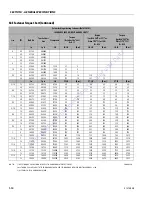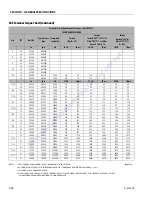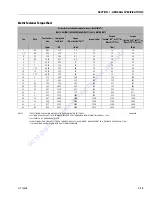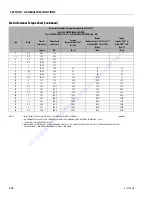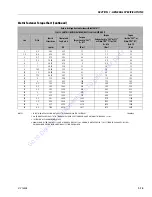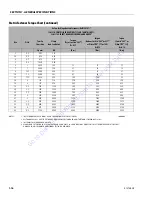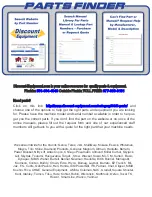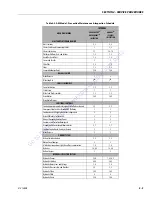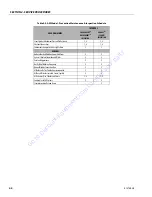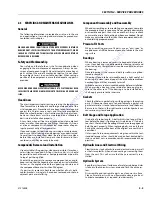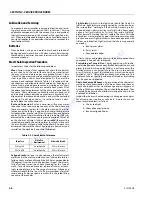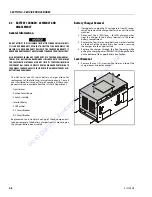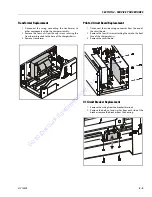
SECTION 2 - SERVICE PROCEDURES
31215808
2-7
2.4
LUBRICATION INFORMATION
Hydraulic System
The primary enemy of a hydraulic system is contamination.
Contaminants enter the system by various means, e.g., using
inadequate hydraulic oil, allowing moisture, grease, filings,
sealing components, sand, etc., to enter when performing
maintenance, or by permitting the pump to cavitate due to
insufficient system warm-up or leaks in the pump supply.
The design and manufacturing tolerances of the component
working parts are very close, therefore, even the smallest
amount of dirt or foreign matter entering a system can cause
wear or damage to the components and generally results in
faulty operation. Every precaution must be taken to keep
hydraulic oil clean, including reserve oil in storage.
Cloudy oils indicate a high moisture content which permits
organic growth, resulting in oxidation or corrosion. If this con-
dition occurs, the system must be drained, flushed, and refilled
with clean oil.
It is not advisable to mix oils of different brands or types, as
they may not contain the same required additives or be of
comparable viscosities. Good grade mineral oils, with viscosi-
ties suited to the ambient temperatures in which the machine
is operating, are recommended for use.
NOTE:
Metal particles may appear in the oil of new machines due
to the wear-in of meshing components.
Hydraulic Oil
For best performance, JLG recommends the use of ISO-Vg
grade 32, 46 oil with a viscosity range between 15-250 SUS at
100 degrees F (32-54 cST at 40 degrees C).
Changing Hydraulic Oil
Use of any of the recommended hydraulic oils eliminates the
need for changing the oil on a regular basis. If it is necessary to
change the oil, use only those oils meeting or exceeding the
specifications appearing in this manual. If unable to obtain the
same type of oil supplied with the machine, consult local sup-
plier for assistance in selecting the proper equivalent. Avoid
mixing petroleum and synthetic base oils. JLG Industries rec-
ommends changing the hydraulic oil annually.
Use every precaution to keep the hydraulic oil clean. If the oil
must be poured from the original container into another, be
sure to clean all possible contaminants from the service con-
tainer.
While the unit is shut down, a good preventive maintenance
measure is to make a thorough inspection of all hydraulic
components, lines, fittings, etc., as well as a functional check of
each system, before placing the machine back in service.
Lubrication Specifications
Specified lubricants, as recommended by the component
manufacturers, are always the best choice, however, multi-pur-
pose greases usually have the qualities which meet a variety of
single purpose grease requirements. Should any question
arise regarding the use of greases in maintenance stock, con-
sult your local supplier for evaluation. Refer to Table 1-2. for an
explanation of the lubricant key designations appearing in the
Lubrication Chart.
Go
to
Discount-Equipment.com
to
order
your
parts

